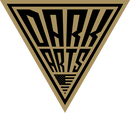Staying Local, Staying Durable and why it matters…
As surfers, we understand the necessity of conscious consumption and how it impacts not only the environment, but also our local communities. The water around us, the health of the reef, and the accessibility of cherished surf spots have garnered the attention of grassroots activist groups across nations. The economic structure today generates countless used surfboards that only last around 6 months before losing the viability they once had.

As major companies churn out lightly glassed shortboards that generally last a few weeks before the first necessary ding repair, Dark Arts has taken a focus on surfboard design garnered towards sustainability through creating a surfboard that will last. Longevity is provided through providing a high-performance surfboard that not only retains the initial pop experienced upon that first beloved surf, but also the durability to make it through the inevitable interactions with the reef from a mistimed barrel, a brief interaction with the ceiling fan… or even the baggage agent that you see from the plane throwing your board back under all the passenger’s luggage.
 Justin Ternes "JT" - Founder, Dark Arts Surfboards
Justin Ternes "JT" - Founder, Dark Arts Surfboards
Justin Ternes, founder of Dark Arts, knows well the dings, snaps and fin blows we are all familiar with. He knows buying more PU boards will only perpetuate this high turnover situation experienced by surfers today, and through incorporation of carbon-wrapped surfboard construction has alleviated those ding-before-surf situations that plague our dreams.
 Robbie Burns, Sanding & Glassing
Robbie Burns, Sanding & Glassing
Dark Arts understands sustainability means less purchasing and more surfing. It also means taking care of local surf breaks, paying attention to waste generation, and fostering a harmonious relationship with our ecosystems and communities.

Many corporate surfboard manufactures have moved production towards more profitable, deregulated areas. Outsourced labor not only bypasses essential environmental regulations, but also tends towards human inequity through unfair wages and living conditions. Dark Arts, by choosing to remain in San Diego, has committed to retaining an ethical standard not common in surfboard manufacturing today.

 Julian Curto, Production Assistant
Julian Curto, Production Assistant
 Greg Fernandez, Licensee Relations & Marketing
Greg Fernandez, Licensee Relations & Marketing
Why does it matter where a surfboard comes from? Making surfboards in the US means careful observance of environmental impact and continuation of honorable wages. Also, consider your local surfing community. Who are the ones sponsoring the grom comps, and giving boards to the ripping up-and-comers? It’s the local surf shops, and community businesses. Supporting local shapers and glassers is crucial for preserving the surfing spirit that won us over in the first place.
 Phil Ebner, Factory Manager
Phil Ebner, Factory Manager

Here at Dark Arts the same meticulous work put into perfecting your next surfboard also goes towards stewarding the people and places around us. This standard represents the values upheld by Dark Arts and our commitment to stay true to what we believe without compromise.
 Eddie Kossmayer, Shipping
Eddie Kossmayer, Shipping

Dana Zeff, Founding Partner and her son Asher Zeff with his JT Coffin.

Local & Family.
Justin Ternes with family: Wife - Monica, Dark Arts Creative Director, and children Ovidia & Levi.


